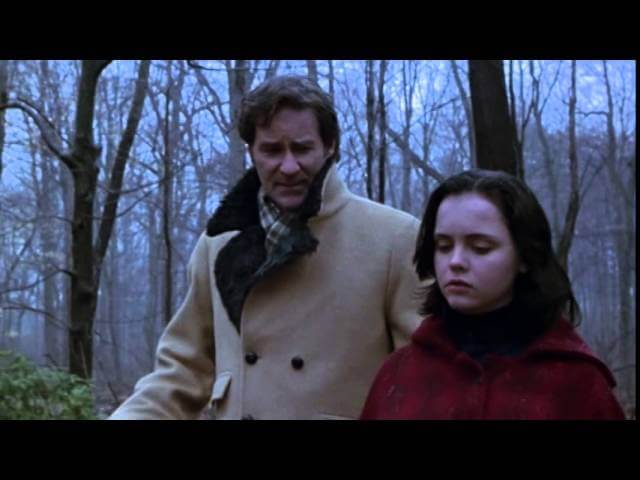Ang Lee's The Ice Storm is a portrait of an America caught out in the cold

Watch This offers movie recommendations inspired by new releases or premieres, or occasionally our own inscrutable whims. Because it’s still winter, this week we’re looking back on films set in very cold places.
The Ice Storm (1997)
The opening shot of Ang Lee’s The Ice Storm is of a train, stopped on the tracks—literally stuck between stations—in the gray-skied moments between night and dawn. It’s just one of many images to come of a world that’s frozen in motion, where the wind rustles leaf-less trees that jangle with dripping blue icicles like enormous chandeliers, and the streets that have become slick and forbidding—life stiffened and silenced, the familiar comforts of home turned coldly dangerous. Lee compounds this with myriad other images of flatly reflective surfaces, his characters peering forlornly out of gleaming glass houses or catching their somber faces in shop windows, while giving us repeated close-ups of sharply angled decorative bowls and ice trays cracking cubes into cocktail tumblers. By the time the film finally gets to its titular ice storm, it’s almost sagging, like those trees, under its own metaphorical weight. These people are trapped beneath the surface of their lives, it tells us, separated from each other by a chill that’s slowly seeped in and finally hardened. And only after the ice has been scraped away will they be able to move forward again.
Lee’s film, like the Rick Moody novel it’s based on, takes place in 1973, an era when America itself was stuck between waypoints, when the libertine, all-you-need-is-love idealism of the 1960s had yielded to the realities of suburban drudgery and Richard Nixon—a bracing cold front sweeping in on the Summer Of Love. The residents of New Canaan, Connecticut are leading lives of tastefully appointed desperation, epitomized by two neighboring, intertwined families. The Hoods are captained by the boozing, visibly sapped Ben (Kevin Kline, starring in another ’60s hangover movie with a wintry title). His wife, Elena (Joan Allen), hides her existential dissatisfaction behind a mask of poised detachment and self-help babble. Their son, Paul (Tobey Maguire, in wide-eyed, creaky-voiced bloom), is off at boarding school, a proto-nice guy pining for the wealthy, weirdly named Libbets (Katie Holmes). His younger sister, Wendy (Christina Ricci), is home blossoming into a deadpan shit-stirrer, her teenage cynicism dovetailing nicely with the daily outrages of Watergate. Wendy’s also realizing the power of her sexuality, using it to torment Mikey (Elijah Wood) and his little brother Sandy (Adam Hann-Byrd), of the neighboring Carver family. Meanwhile, Janey Carver, played by Sigourney Weaver with an acerbic peevishness, is having an affair with Ben.
These are miserable people, and the film finds them convening around Thanksgiving, that special time of year when families come together to turn festering passive-aggression into a compulsory feast. Maguire, years out from his own Marvel movie stardom, sets the tone with his opening voice-over about the Fantastic Four, offering an analogy about how families are “your personal negative matter… the closer you’re drawn back in, the further into the void you’re thrown.” That void is expressed in every lingering silence here, as everyone struggles just to talk to each other. The open secret of Ben’s infidelity surrounds his every stilted conversation with Elena, who’s resigned herself to just waiting for him to have the guts to divorce her.
